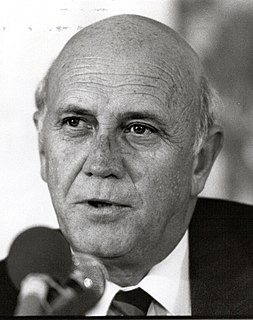A Quote by Ken Wilber
One's sanctions for truth and goodness are established largely by individual preferences.
Quote Topics
Related Quotes
In the most general terms, the Enlightenment goes back to Plato's belief that truth and beauty and goodness are connected; that truth and beauty, disseminated widely, will sooner or later lead to goodness. (While we're making at effort at truth and goodness, beauty reminds us what we're hold out for.)
The only thing that really matters is that there be an action of goodness, love and intelligence in living. Is goodness individual or collective, is love personal or impersonal, is intelligence yours, mine or somebody else? If it is yours or mine then it is not intelligence, or love, or goodness. If goodness is an affair of the individual or of the collective, according to one's particular preference or decision, then it is no longer goodness.
Sanctions kept us on our toes, it made us realize that we were drifting into a situation of growing isolation so I wouldn't go as far as to say sanctions didn't play a role but if I were to put on a scale, the issues of conscience played a much greater role than the sanctions. We could have withstood sanctions for many more years. We became experts in circumventing sanctions... So sanctions played a role but it wasn't the major role.
The Dhamma has to sink deeply into the mind so that whatever we do, the mind has always goodness within it. All the ways of making merit are aiming at this. Goodness lies in the right view that is established in the mind. Then we don't have to celebrate it or let anybody know about it, simply let the mind have firm confidence in the goodness and keep going like this.
At the U.N., I routinely encounter countries that do not want to impose sanctions or even to enforce those already on the books. The hard-line sanctions skeptics have their own self-interested reasons for opposing sanctions, but they ground their opposition in claims that America uses sanctions to inflict punishment for punishment's sake.
At the heart of the First Amendment is the recognition of the fundamental importance of the free flow of ideas and opinions on matters of public interest and concern. The freedom to speak one's mind is not only an aspect of individual liberty - and thus a good unto itself - but also is essential to the common quest for truth and the vitality of society as a whole. We have therefore been particularly vigilant to ensure that individual expressions of ideas remain free from governmentally imposed sanctions.
So, I think that for the authorities to say now that calling for sanctions will prevent dialogue is a ploy to stop us from supporting sanctions. It has to be the other way around: dialogue first, then we stop our call for sanctions, because sanctions make people understand that you cannot exercise repression and at the same time expect international support.
Things that are good are good, and if one is responding to that goodness one is in contact with a truth from which one is getting something. The truth is doing us good. The truth of the sunshine, the truth of the rain, the truth of the fresh air, the truth of the wind in the trees, these are truths. And they are always accessible!
That`s how you end up with a guy like Dan Fried, overseeing the U.S. sanctions against Russia for Russia did in Ukraine and Crimea.Russia hates those sanctions more than they love life. They hate those sanctions. So, of course, you need your toughest and most experienced guy running those sanctions.

































